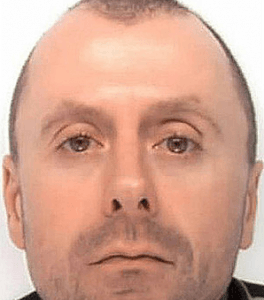McDermott to challenge his extradition on May 19

Mr Victor K. Adawudu, the Attorney for David McDermott, the alleged British fugitive, would on May 19, move an application challenging the decision of the district court which ordered his extradition to the United Kingdom.
This was after defense Attorney, Mr Victor K. Adawudu, had appeared before the High Court in Accra.
The High Court, presided over by Mr Justice Dorgu, has ordered that the Attorney General be served with hearing notices by the next sitting.
When the case was called, Mr Adawudu said he received the magistrate’s ruling and proceedings on Tuesday, hence would file a supplementary affidavit for the matter.
According to the Defence Attorney, after interacting with his colleagues from the Attorney General’s Department, they were yet to be served with hearing notices.
The court, therefore, adjourned the matter.
McDermott, who appealed against the lower court’s decision, is in the custody of the Bureau of National Investigations.
McDermott is alleged to be involved in the smuggling of 400 kilogrammes of cocaine to the United Kingdom (UK).
The Magistrate’s Court, presided over by Mrs Justice Merley Afua Wood, a High Court Judge, who sat with additional responsibility as a Magistrate, said the UK Government’s request for McDermott’s extradition was in line with all the necessary legal requirements of the country.
According to the court, the offences for which the accused had been charged were not political in nature adding that they were recognisable under the laws of both countries.
McDermott had been residing in Ghana under the name David Smith for the past three years but was picked up at his hideout in Accra on March 11, this year.
The fugitive had been declared wanted by the UK Government to stand trial in the Liverpool and Knowsley Magistrate’s Court for narcotic offences in the UK.
McDermott is being held on three counts of conspiracy to contravene Section 170 of the Customs and Excise Management Act, 1979, contrary to Section 1(1) of the Criminal Law Act 1977; conspiracy to supply a controlled drug of Class A, contrary to Section 1(1) of the Criminal Law Act 1977, and conspiracy to blackmail, contrary to Section 1(1) of the Criminal Law Act 1977 of the UK.
Source: GNA
